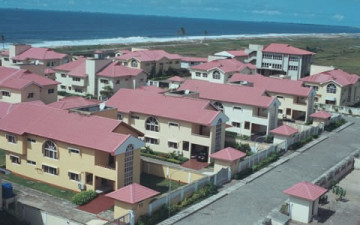Stakeholders call for regulation of house prices
Stakeholders in the built environment have said that there is a need for a regulatory framework that will prescribe the prices at which houses should be sold in the country.
The stakeholders, who spoke at the recently concluded three-day Abuja Housing Fair, which was organised by FESADEB Communications Limited, noted that the move would eliminate excessive profiteering by landlords and property developers.
“There is a need for a regulatory framework that will cap prices at which houses can be sold. This is to checkmate excessive profiteering by private landlords and estate developers, and save low-income earners from exploitation.
“There is also a need to encourage corporate organisations to incorporate the provision of homes for the communities as part of their corporate social responsibility,” a communiqué issued at the end of the fair read in part.
It added that the private sector and development partners needed to drive research for and development of alternative building technologies in terms of providing the financial resources and technical assistance for tested solutions to drive structural transformation.
According to the communiqué, the challenge of poor infrastructural facilities to providing affordable housing needs to be addressed.
Participants at the fair noted that the Federal Government had over the years put in place a number of initiatives to grow the housing sector, the most recent being the setting up and operationalisation of the Nigeria Mortgage Refinance Company; and the development of the Land, Housing and Urban Development Roadmap to promote national building standards in collaboration with private developers to enhance the implementation of the government’s housing vision.
Another, according to the participants, is the establishment of vocational training centres to build the capacity of unskilled workers involved in the housing delivery chain.
The communiqué, however,stated that in spite of the potential for growth in the mortgage market proffered by these initiatives, the evolution of the housing sector had remained replete with new dynamics, which required sustainable solutions to broadening access to affordable housing.
The communiqué added, “Part of this solution is building synergy among all the stakeholders and adopting a value chain approach to housing delivery in Nigeria. Over the years, focus has been on closing the housing deficit gap, which in the real sense is misleading and not sustainable. This has resulted in treating the various components of the housing delivery chain as individual entities, hence it has yielded unsustainable results.
“For more sustainable progress to be made towards solving Nigeria’s housing problems, there is a need to de-focus closing the housing deficit gap, and to pursue overarching value chain and market-based approach, which links together all the various components of the housing delivery chain.
“Some of the approaches currently adopted to address the supply and demand sides of housing finance are fashioned ‘top-down’, bereft of sufficient stakeholder participation and inclusive engagement that are critical for successful implementation.”
According to the communiqué, the stakeholders noted that high cost of housing as well as limited debt finance options and mortgage insurance appeared on top of the lists of issue affecting access to housing finance.


